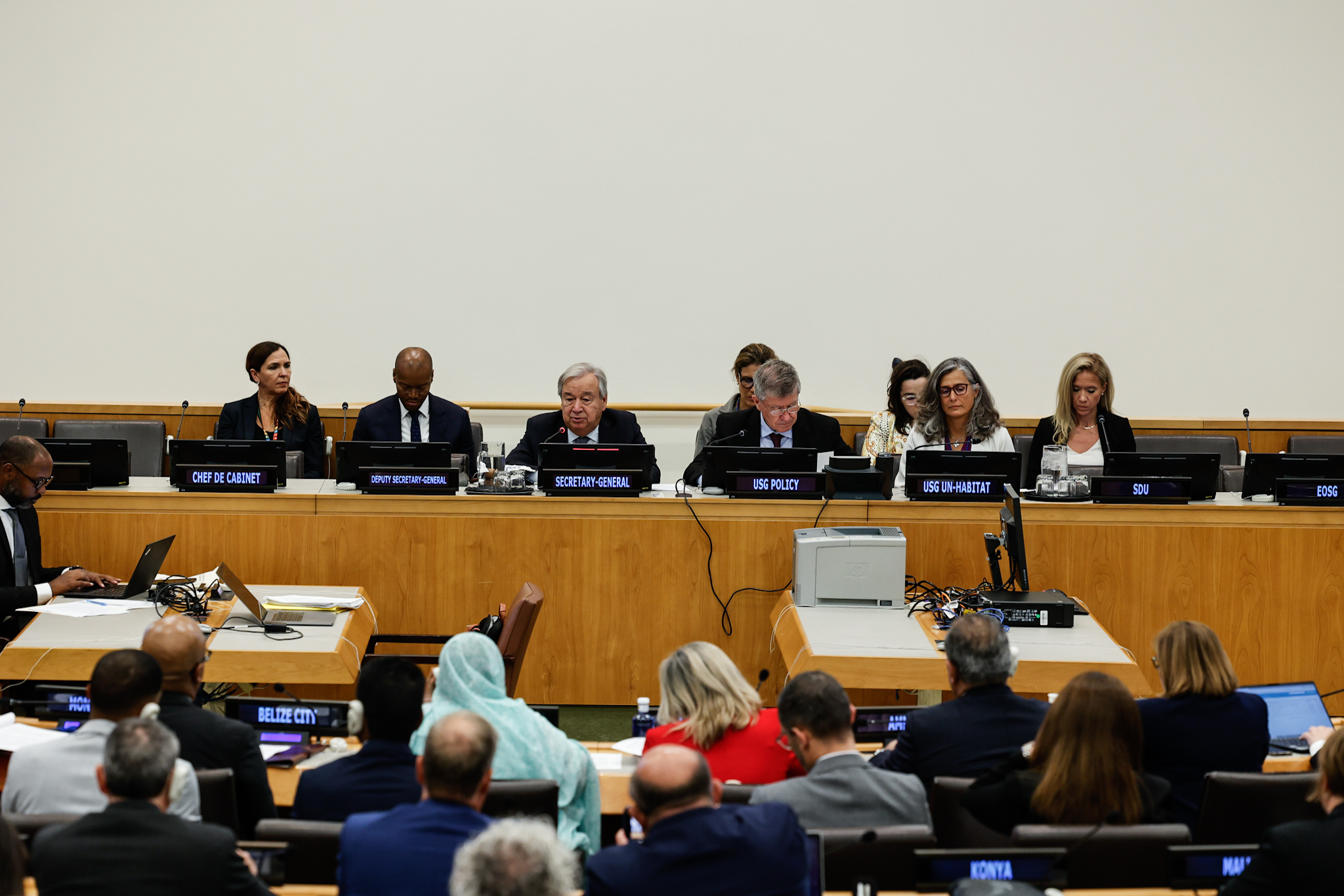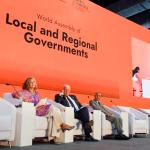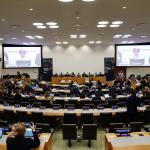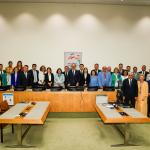
In a landmark gathering at the United Nations Headquarters, the third meeting of the UN Secretary-General Advisory Group on Local and Regional Governments (AGLRG) was held, where the United Nations global strategy for the engagement of local and regional governments in intergovernmental processes, the result of the works of the group, was delivered.
The meeting was hailed as a prelude to the Summit of the Future during the United Nations General Assembly and a strong political moment to kick-off the engagement of our self-organized constituency throughout the Summit. The UN Secretary-General presented a bold and ambitious vision for a networked and inclusive multilateralism where local and regional governments are governing partners through meaningful engagement in UN policymaking processes and bodies.
The Advisory Group, composed of members from diverse regions and representing a broad spectrum of spheres of government, emphasized the need for a distinct status for local and regional governments in the UN framework. They argued that such a status would acknowledge their unique role as guardians of public trust and enablers of transformative change for a sustainable future for present and future generations
"We are not just participants but co-creators of global solutions"
"Our engagement is crucial for the success of the UN's agenda, and we stand ready to contribute to a more inclusive and resilient multilateral system"
The meeting saw unprecedented participation from local and regional leaders from the Global Taskforce of Local and Regional Governments delegation including mayors, governors. The presence of such a diverse delegation underscored the collective commitment to the group's recommendations. This final meeting was not seen as the conclusion of their work, but rather the kick-off of a new phase focused on translating these recommendations into action. These leaders not only voiced their support for the deliverable but also reaffirmed their dedication to support its key recommendations.
The UN Global Strategy for the engagement of local and regional governments in intergovernmental processes represents the compilation of a comprehensive plan for engaging local and regional governments in global governance. The strategy builds on previous deliverables produced by the Advisory Group, providing a unified vision to enhance the role of the organized constituency in intergovernmental processes. The Secretary-General was commended for his bravery and political engagement in opening the doors to a new era of multilevel collaboration, an approach seen as both timely and necessary in addressing global challenges with local political leadership.
The meeting echoed strong support for the Secretary-General’s vision laid out in "Our Common Agenda," particularly his call for a new multilateralism that integrates local governments into the global decision-making process. The Advisory Group’s recommendations, including enhancing the structural engagement of the organized constituency and advocating for their recognition as distinct political entities, were seen as critical steps towards achieving this vision.
The atmosphere in the room was one of unity and determination. As the strategy was unveiled, there was a palpable sense of purpose among the local and regional delegates. The document calls for a "multilevel compact" to address the growing challenges faced by urban areas, including rapid urbanization, climate change, and social inequality. It also highlights the need for localized SDG implementation and stronger collaboration between national governments and local authorities.
The meeting concluded with a unanimous commitment to continue advocating for the formal and permanent status of local governments within the United Nations system. The next steps include engaging with Member States and other stakeholders to garner support around these recommendations ahead of the United Nations Summit of the Future and beyond.
Through this Global Strategy, the Secretary-General’s Advisory Group on Local and Regional Governments has set the stage for a transformative dialogue. They have laid a robust foundation for the future of local-global governance, signaling a new chapter in the United Nations’ approach to multilateralism. The time for action is now, and local and regional governments are poised to play a central role in shaping the future of global governance.
The Advisory Group on Local and Regional Governments to the UN Secretary-General is composed by the following members:
Ms. Fatimetou Mint Abdel Malick, President of Nouakchott Region, Mauritania (co-Chair)
Ms. Pilar Cancela Rodríguez, State Secretary for Migration, Spain (co-Chair)
Mr. Mauricio Zunino, Mayor of Montevideo, Uruguay
Ms. Paola Pabón, Governor of Pichincha, Ecuador
Mr. Bernard Wagner, Mayor of Belize City, Belize
Ms. Abby Binay, Mayor of Makati City, Philippines
Dr. Yousef Shawarbeh, Mayor of Amman, Jordan
Ms. Fatma Şahin, Mayor of Gaziantep, Türkiye
Ms. Fatiha el Moudni, Mayor of Rabat, Morocco
Mr. Peter Anyang’ Nyong’o, Governor of Kisumu County, Kenya
Ms. Sharon Dijksma, Mayor of Utrecht, Netherlands
Ms. Anne Hidalgo, Mayor of Paris, France
Mr. Sadiq Khan, Mayor of London, United Kingdom
Mr. Eric Adams, Mayor of New York, US
Ms. Valérie Plante, Mayor of Montreal, Canada
Ms. Catalina Velasco, former Minister of Housing, City and Territory, Colombia
Ms. Nandita Chatterjee, former Secretary, Ministry of Housing and Urban Affairs (MoHUA), India
H.M. Eng. Suleiman H. Adamu, Federal Ministry of Water Resources/ Traditional Title Holder, Nigeria
Ms. Marivel Sacendoncillo, former Undersecretary (Deputy Minister), Department of the Interior and Local Government (DILG), Philippines




